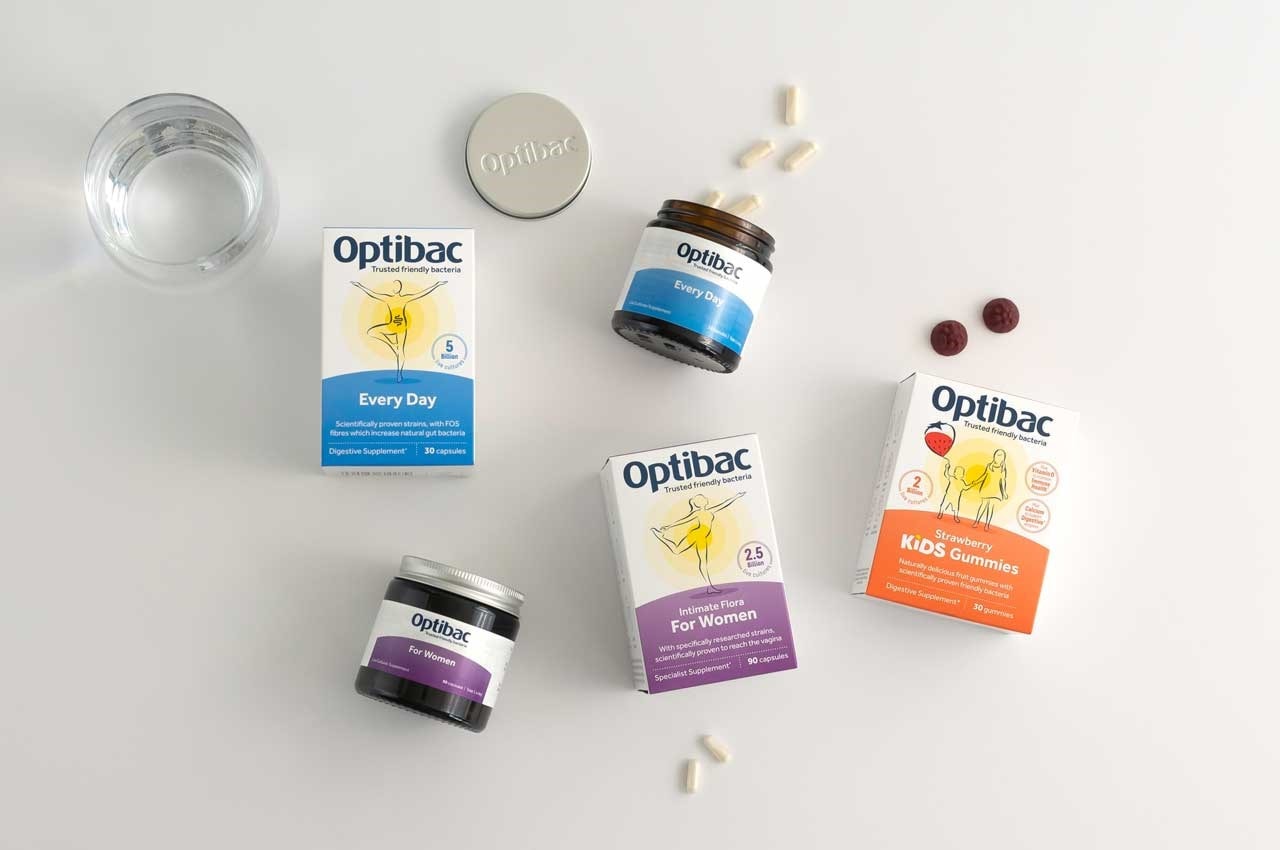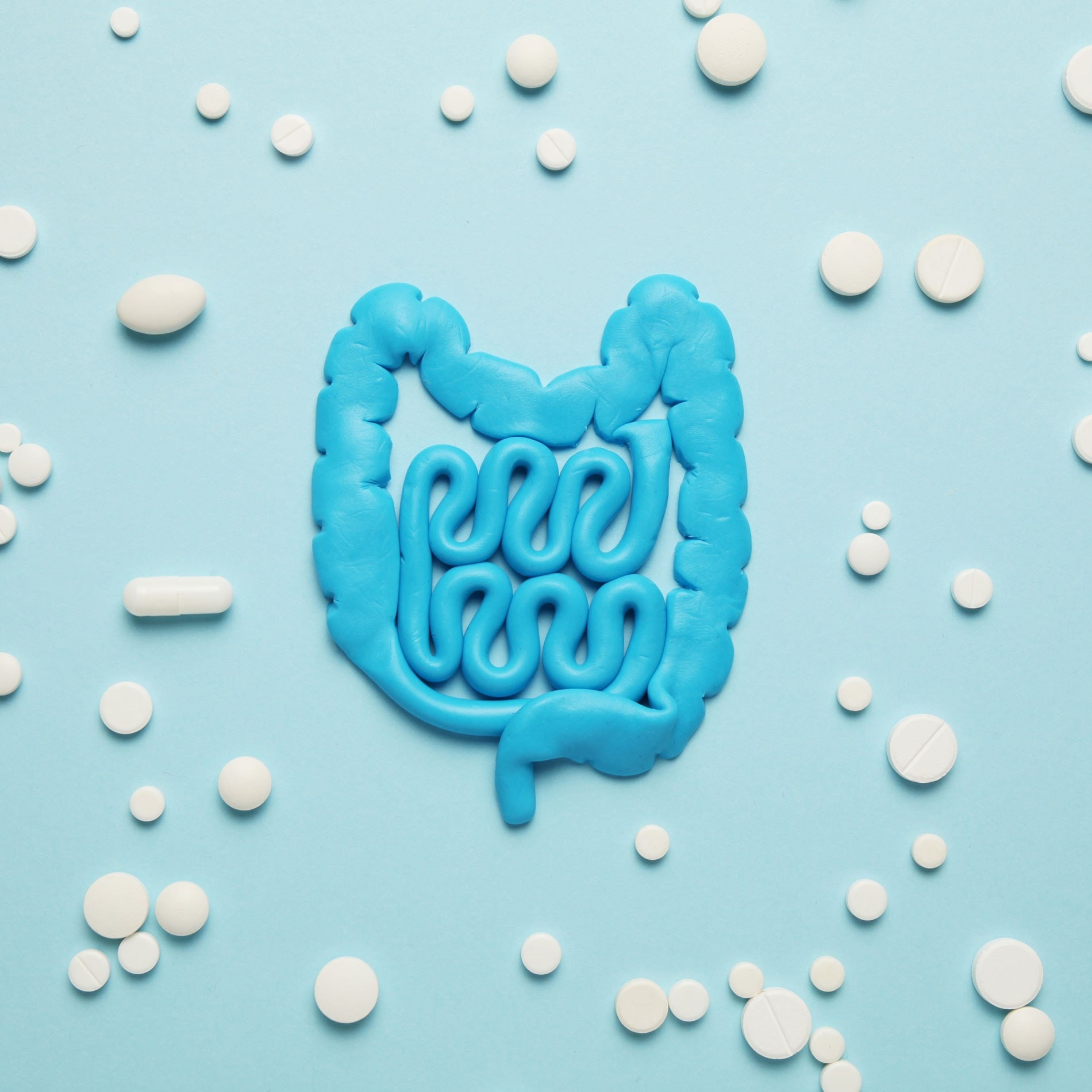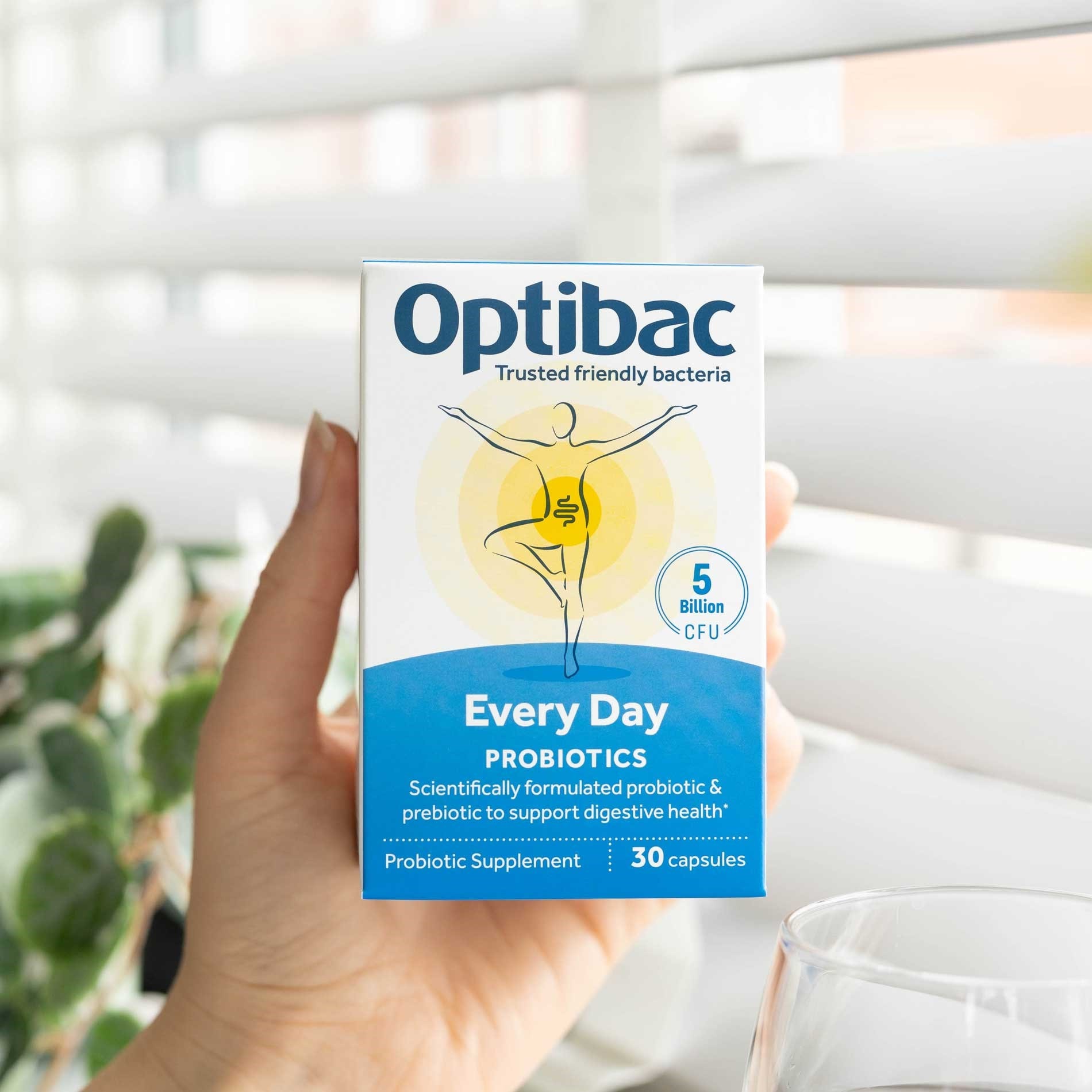You are on the US site
Hello UK customer, you are currently shopping on the US site. To ensure you are charged in the correct currency and receive accurate shipping costs, please switch to the UK website and re-add your product to your basket.
You're away from FREE US delivery Free US delivery (applied at checkout) on orders over $60.00
You have qualified for Free US delivery
About Probiotics
Do Probiotics Have Side Effects?
Side effects from friendly bacteria are rare, but they can occur in some individuals. If your gut bacteria is out of balance you might experience some initial side effects due to changes in the gut microbiome. Find out more in this FAQ.
- Are there any negative side effects of taking probiotics?
- What happens to your body when you start taking probiotics?
- How long do probiotic side effects last?
- Side effects from prebiotics
- Can probiotics make your gut worse?
Are there any negative side effects of taking probiotics?
As previously explained, side effects are not typically experienced when taking probiotics, but it is always a good idea to take note of how your body responds to any new supplements, foods, or medications.

The most commonly reported initial side effects include bloating, increased flatulence or bowel pattern alterations. It is worth noting that taking a very large amount of the friendly yeast Saccharomyces boulardii may slow down stool transit time in those prone to regularity issues.
What happens to your body when you start taking probiotics?
Our gut microbiome is as unique as our fingerprints, there are no two exactly the same1. This can influence the response you may have to your probiotic supplement. Most people won’t notice any effects; however, a few people may notice some digestive changes to start with. These digestive changes occur as our gut microbiome adjusts to the introduction of new friendly bacteria. Probiotics encourage a more hospitable environment for other friendly bacteria to grow and facilitate the displacement of more harmful bacteria in the gut.
Some people ask whether it's harmful to take probiotics every day. For reassurance and more information please read: Should I Take Probiotics Every Day
Learn more by reading How do probiotics work? on the Probiotics Learning Lab site.*
How long do probiotics side effects last?
If you tend to be sensitive to new foods and supplements, or experience any initial effects, then it’s best to phase your new supplement in gradually. Just take half a capsule or sachet every other day to start with, and then gradually increase. It’s fine to open the capsules and just take half the contents.
Some customers ask us, what can I do if I experience any initial probiotic side effects? If you need to, stop the supplement for a few days and then reintroduce in small amounts. This can help reduce the risk of disrupting the gut bacteria populations too much, and large numbers of bad bacteria dying off all at once as the good bacteria are introduced.
What is die-off?
You may have heard the term ‘die-off’; this is thought to happen when there’s a lot of bad bacteria in the gut (dysbiosis) and they die off due to the use of certain medicines or supplements which might displace them, including probiotics. It’s believed that this phenomenon can result in a whole variety of different effects; however, if you experience unusual symptoms whilst taking a probiotic, don’t assume that these effects are related to the supplement. It is best to discuss any unusual symptoms with your doctor.
To learn more about dysbiosis and gut health, read the article Gut health – all you need to know on the Probiotics Learning Lab..

Side effects from prebiotics
Some people find that prebiotics (the food source for friendly bacteria) can cause minor discomfort, bloating or wind during the first few days of taking them. However, flatulence can simply be a sign that the body's good bacteria is being stimulated and these symptoms should disappear and improve with time. As such, the benefits of taking prebiotics generally outweigh the minor discomfort you may experience initially2. In the rare case that symptoms do not decrease after a few days, consider reducing your dose of prebiotics before gradually building it up again.
A recent clinical trial3 found that initial symptoms such as bloating and gas should eventually resolve, and that taking prebiotics should, in time, actually decrease flatulence symptoms. The results showed that after two weeks, there was actually a decrease in gas production by resident gut bacteria, because they appeared to adapt and produce less gas4, and more of the gas that was produced was metabolised and absorbed. This resulted in less bloating and flatulence less gas is produced and suggested that regular consumption of prebiotics could help regulate intestinal gas metabolism. Our bodies may just need to give our gut flora a little time to adapt.
Visit the Probiotics Learning Lab to find out more about prebiotics.
Can probiotics make your gut worse?
As with different foods, some bacterial strains suit some people better than others. Again, no significant probiotic side effects should be noted but you may just find that you get on better with some strains more than others. It is important to remember that even if you have side effects of probiotics that they are safe for human consumption because they already live in our gut and any effects should not be harmful. Finding the right type of friendly bacteria for the right person is usually straight forward but for some, it can involve trying a couple of different live cultures until they find the right fit. If you are unsure then our Nutrition Team are here to advise you – contact them on advice@optibacprobiotics.com
Note: Probiotics are not recommended for those with serious medical conditions e.g. those who are severely immunosuppressed, have pancreatitis, are in the ICU, have melaena, have a central venous catheter, infants with short bowel syndrome, or to patients with open wounds following major surgery; unless under a doctor's care. Furthermore, pregnant or breastfeeding women should consult their doctor before taking Saccharomyces Boulardii supplements. To read more about the contraindications, you may wish to read 'When should I not take probiotics?'
Health professionals can read more about side effects of probiotics in-depth over in the Professionals area
References
- Grice EA, Segre JA. The human microbiome: Our second genome. Annu Rev Genomics Hum Genet. 2012;13:151-170. doi:10.1146/annurev-genom-090711-163814
- Williams NT. Probiotics. Am J Heal Pharm. 2010;67(6):449-458. doi:10.2146/ajhp090168
- Mego M, Bendezú A, Accarino A, Malagelada J-R, Azpiroz F. Intestinal gas homeostasis: disposal pathways. Neurogastroenterol Motil. 2015;27(3):363-369. doi:10.1111/nmo.12498
- Mego M, Accarino A, Tzortzis G, et al. Colonic gas homeostasis: Mechanisms of adaptation following HOST-G904 galactooligosaccharide use in humans. Neurogastroenterol Motil. 2017;29(9). doi:10.1111/nmo.13080
Author: Beverly Richards, DipION Nutritional Therapist
Popular Articles
View all Health News articles-
About Probiotics04 May 2023
-
About Probiotics04 Oct 2024
-
About Probiotics04 Oct 2024


